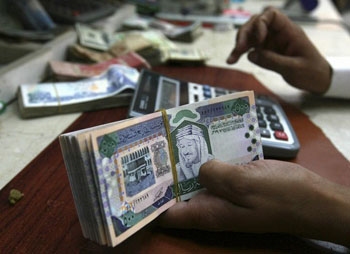Jeddah, Feb 6: The Saudi Arabian Monetary Agency (SAMA) has ordered all Saudi banks not to touch the two-month salary bonus granted by Custodian of the Two Holy Mosques King Salman to all Saudi government and military employees, retirees and students.

According to Talat Hafiz, secretary-general of Media and Banking Awareness Committee of Saudi Banks, this procedure will protect Saudis who are eligible to take advantage of the royal decree, but have been required to pay bank loans.
“SAMA’s instructions are clear to all Saudi banks. There are several Saudi state employees who are required to pay bank loans. At the same time, the two-month bonus is considered a gift from King Salman to Saudis and banks do not have the right to deduct anything from these benefits,” Hafiz told Arab News.
Most Saudis prefer to work in a limited number of major Saudi companies, such as Saudi Aramco, SABIC and other large national employers that have a good reputation with local banks, making it easier for employees at these companies to secure loans.
Meanwhile, Finance Minister Ibrahim Al-Assaf on Wednesday informed all government departments that his ministry has started providing them with additional funds to implement the royal decree.
Al-Assaf also instructed the ministries and departments to pay the two-month bonus to all the retirees including those who have been allowed to take long leave because of pregnancy or disease.
“The bonus shall be paid on the basis of the latest basic salary while the two-month stipend shall be given to only students of government universities and colleges,” he said.
Referring to government employees who pursue higher studies abroad on scholarship, Al-Assaf said they would be treated like scholarship students in foreign countries and paid only two-month remuneration. He also instructed ministries to avoid double payment. “The bonus payment should not be linked with the timing of the payment of usual salary,” the minister said.
The total bonus for government employees, retirees and students would amount to SR110 billion.
Fadiya Al-Fawaz, an expert in social responsibility programs, said major Saudi companies would cut down their allocations for their CSR programs in 2015 as a result of the payment of bonus. She said fall in oil prices would also affect CSR programs for social welfare this year.





Comments
Add new comment